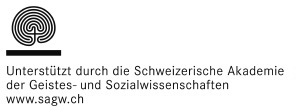Message Reminders Encouraging Brisk Walking by Considering the Dynamic Factor of Cognitive Fatigue
DOI:
https://doi.org/10.47368/ejhc.2022.303Keywords:
physical activity, cognitive fatigue, goal reminders, dynamic factorsAbstract
Physical inactivity and sedentary behaviours are leading risk factors for preventable health problems worldwide. Therefore, several smartphone-based interventions have tried to enhance physical activity (PA) through goal reminders based on relatively stable characteristics. However, time-varying factors, such as cognitive fatigue, may act as barriers to engagement in PA. This study aims to unravel what type of goal reminder messages are effective for enhancing PA in situations of cognitive fatigue. First, using a 3 x 3 between-subjects design, we evaluated the effectiveness of goal reminders matched with real-time goals under different levels of cognitive fatigue. This study did not find evidence that the tested goal reminders, intended to be adapted to the real-time goals of the participants, were more effective in promoting PA than goal reminders not adapted to individuals’ real-time goals. Second, to better understand how to design future reminders, two questions explored what format and what content participants considered to be helpful when feeling cognitively fatigued. Results show that GIFs, textual reminders, and pictures are suitable formats in smartphone-based interventions and that humorous content is preferred when feeling cognitively fatigued. These findings contribute to the development of just-in-time adaptive interventions that consider dynamic factors to promote PA.
Downloads
Published
How to Cite
Issue
Section
License
Copyright (c) 2022 Michelle Symons, Heidi Vandebosch, Clara Alida Cutello, Karolien Poels

This work is licensed under a Creative Commons Attribution 4.0 International License.
The authors agree to the following license and copyright agreement:
a. Authors retain copyright in their work.
b. Authors grant the European Journal of Health Communication the right of first publication online on the internet (on the publication platform HOPE of the Main Library of the University of Zurich).
c. The electronic contributions on the internet are distributed under the „Creative Commons Attribution 4.0 International“- License (CC BY 4.0). This license allows others to copy and redistribute the work in any medium or format, to remix, transform and build upon the material with an acknowledgement of the work's authorship and initial publication in the European Journal of Health Communication . These conditions are irrevocable. The full text of the license may be read under http://creativecommons.org/licenses/by/4.0/.
d. Authors are able to enter into separate, additional contractual arrangements for the non-exclusive distribution of their work, as long as the conditions of the CC BY 4.0 License are fulfilled and initial publication in the European Journal of Health Communication is acknowledged.
e. Authors grant the Editors commercial rights, using a publishing house, to produce hardcopy volumes of the journal for sale to libraries and individuals, as well as to integrate the manuscript, its title, and its abstract in databases, abstracting and indexing services, and other similar information services.
f. This agreement is subject to possible legal disclosure obligations.
g. This agreement is governed by Swiss law. Court of jurisdiction is Zürich.









